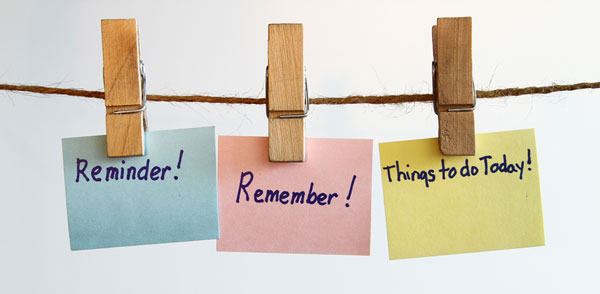Mental exercise is good, but while training does indeed improve your memory (selective, that is), research shows it can’t slow the rate of normal memory loss.
People who trained in such tasks as remembering lists of words and the main points of stories as part of a study did show an improved memory, but only for doing those kinds of tasks. The improvement doesn’t seem to carry over into other tasks we do in everyday life.

If you enjoy doing crosswords and the like, that’s excellent. If you don’t enjoy or can’t do these kinds of puzzles, then don’t worry. Being a crossword champion is great, but it won’t necessarily help when it comes to remembering where you parked the car before you went shopping.
Try these tricks instead to improve your memory:
Stop multitasking
Simply paying attention to what you’re doing will immediately improve your ability to remember it later. Obvious? Yes, but most of us hop from task to task without finishing anything first; answering an email, taking a call, speaking to a colleague. Try not reading emails or answering non-essential phone calls until a certain amount of work is done. At home, the same focus applies. Don’t go out to the shops until you’ve finished dealing with the bills.

Take notes
It’s not memory loss, but the speed in which we process new information that makes it harder to recall. Allow yourself more time, then reinforce what you’ve taken in by note taking – just like exam revision. You want to learn Italian when you’re 90? Fine, it’s going to take you longer, that’s all.
Link facts
Register a task by using linking and associations. If you want to remember to collect your dry-cleaning on the way home, visualise the route you’ll take and see it in your mind’s eye. Or make an acronym. Tomorrow you have to collect your shoes, visit the opticians and buy butter. B is for butter, O for opticians, S for shoe repair: BOSS. In the morning, that word will be in your mind as a prompt.

ALSO SEE: How To Keep A Sharp Mind
PLUS: 6 Ways To De-Stress
3 tricks to remember names
These are the best techniques to help you remember names:
Spaced rehearsal technique – Instead of repeatedly muttering a name or fact to yourself, repeat it once, silently. Wait 10 seconds, silently say it again, wait 20 seconds, repeat it again, wait 30 seconds, then say it once more.
Semantic cueing means supplying a context. For example, if someone’s name is Jane, you might establish a link by thinking of her in relation to another Jane you know. Or you could link her to a famous Jane, such as Jane Fonda.
Can’t remember a name? At social gatherings, try saying, “Do you two know each other?” Usually, the people in question will introduce themselves. Or just say, “I’m sorry, but I’ve forgotten your name. Would you mind telling it to me again?” Nobody will ever hate you for wanting to remember who they are.

